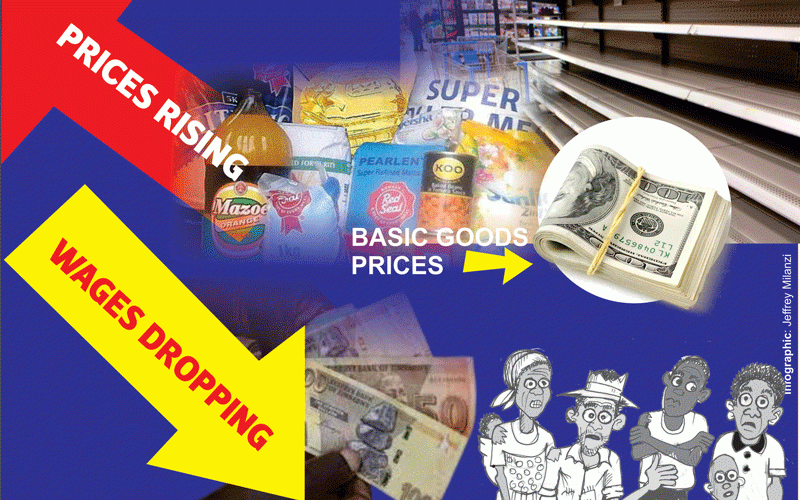
GOVERNMENT has been blamed for dragging millions of citizens into poverty by failing to accurately compute inflation, as the Zimbabwe National Statistics Agency (ZimStat) undertakes an economic census to determine the true health of the economy.
The census, which is scheduled to take place from 2025 to 2026, is meant to produce comprehensive baseline statistics on the size and structure of the economy.
This comes as economic statistics from non-governmental organisations and multilateral institutions have constantly differed from those of government, with inflation being one of them.
In an interview with NewsDay Business at the recent Insurance Institute of Zimbabwe conference, economist Busie Gomez said combining the US and Zimdollar inflation did not give a true reflection of inflation.
As such, she said, the consumers were affected, resulting in poverty levels soaring.
“Yet, in terms of reporting, we are saying our inflation is low, yet on the ground, inflation is hitting hard and causing serious poverty. So, there is a need for revision of how our inflation is calculated in Zimbabwe,” Gomez said.
“I think we need to be true to ourselves and be transparent in terms of what are the real figures on the ground. Are we agreeing with what (American economist) Steve Hanke has said about our inflation? Inflation erodes incomes. It also causes distress to our people. It causes health issues. On the other hand, industry is not able to take up all those people that have been affected by inflation.”
As an example, the International Monetary Fund (IMF) projects Zimbabwe’s annual inflation rate will reach nearly 400% by year end, and about 190% next year.
- US$200K armed robber in court
- Massive ZRP vehicle theft scam exposed
- Building narratives: Chindiya empowers girls through sports
- SRC move, an exercise in futility
Keep Reading
However, ZimStat reported annual inflation at 17,8% last month, down from 18,4% in September, with Treasury predicting inflation to further decelerate.
“I think let’s separate our inflation. Let’s just have US dollar inflation and Zimbabwe dollar inflation. Let’s not combine because even if prices are depicted on the multi-currencies, the pricing is different,” Gomez said.
“We also have a challenge when it comes to interest rates, our interest rates are very high. Currently, they are about 150% thereabout. When interest rates are high, people don’t borrow. So, when people don’t borrow, then there is no investment.”
Last month, the IMF said the Reserve Bank of Zimbabwe (RBZ)’s banking capital metric for banks to determine their health was flawed and encouraged new internationally-based criteria to be used.
Yet, RBZ has repeatedly stated that banks are healthy.
Launching the 2025 economic census on Monday, Finance, Economic Development and Investment Promotion minister Mthuli Ncube said the inaugural census was a priority project that government was fully committed to ensure its success.
“As such, maximum support is expected from the business community through the provision of timely and truthful information, be it State-owned enterprises or privately-owned businesses, whether registered or not registered,” he said.







